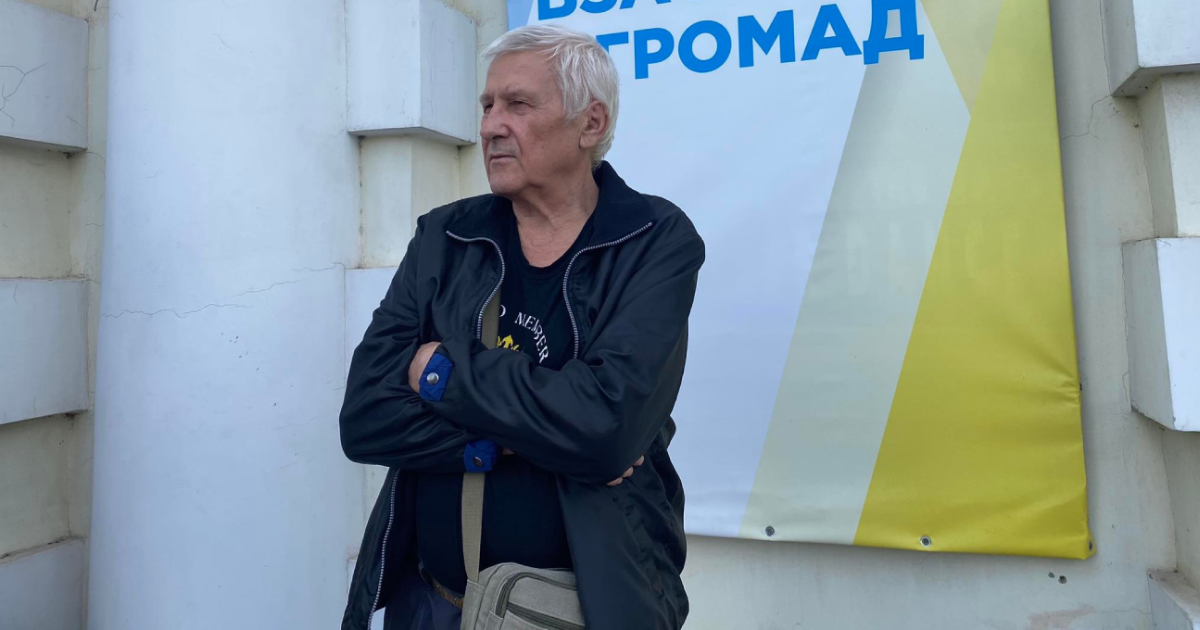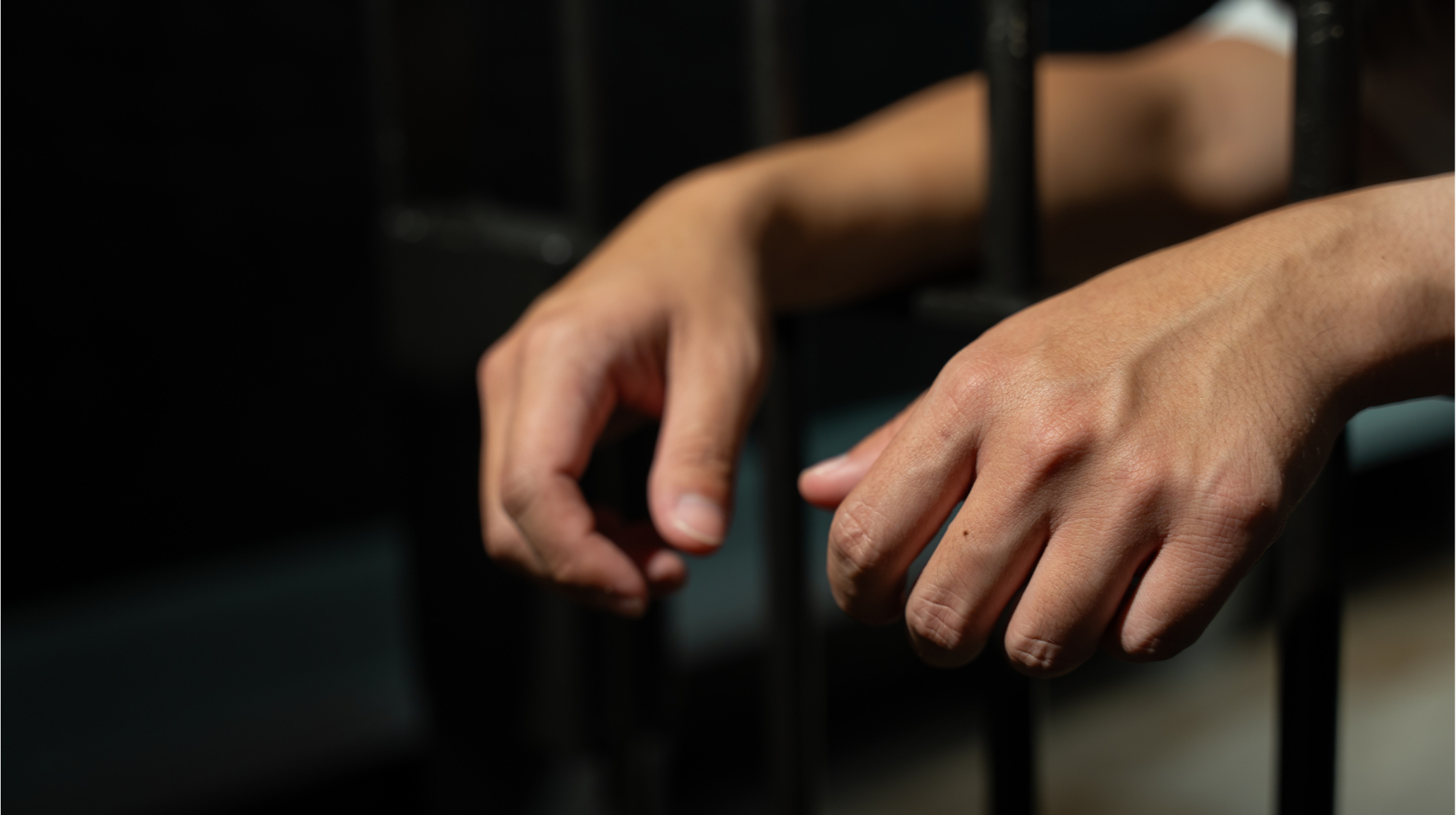“I was afraid that I would be shot.” How a citizen of Melitopol survived three months of occupation and escaped

The first thing the Russians did in captured Melitopol was deprive people of information. First, they blocked the Internet, then seized the radio, and then turned on their propaganda television. “For several days, they played Putin’s speech almost around the clock. And in the conditions of an information vacuum, people were forced to listen to him. At first, it was interesting what he was saying. But later on, I got worse and worse – literally physically. I felt myself deteriorating blood, my stomach burns. And then they also turned on their disgusting songs, and it really started to make me sick. That’s why I stopped these experiments on myself,” says Oleksiy Nikolayenko, a resident of Melitopol. The 71-year-old man spent almost 90 days in the occupation. It was possible to leave only on the third attempt. “UP. Life” as part of the “Hide Your Own” project tells how the man managed to escape. “There is a broken wall in the SBU building, and there are pools of blood nearby” Melitopol was occupied by the Russians at once – on February 25, 2022. They brought their military equipment into the city and opened fire on the SBU building. Oleksiy Nikolayenko witnessed those events. “I heard a sound like a tractor running and smelled diesel. I looked around the corner and saw three tanks – whose they were, I didn’t understand. Then one of the tanks moved, the hatch was open, and there was a young military man sitting there: he fired a machine gun in the direction of the SBU. I left there. And when I returned about an hour later, I saw that the wall in the SBU building was broken, and there were pools of blood nearby. There are also two awning trucks. A few seconds later, a car drove up to them, with from which several soldiers in uniform, but without identification marks, came out. They hastily took some folders from the cabs of the trucks. I dared and asked: “Guys, whose will you be?” And they said: “Ukrainian” (the conversation was conducted in Russian, ed. ). Well, I believed them. And then they drove me out of there so that I wouldn’t record anything on my phone,” the man says. “A wall is broken in the SBU building, and there are pools of blood nearby…” The very next day, February 26, Oleksiy again went to the SBU building and saw the flag of the Russian Federation on it. And near the district state administration there was already Russian equipment with the letters Z and military. That’s how Oleksiy realized that Melitopol was occupied. “I later remembered that when I approached the SBU, I saw that after the shelling there, the Ukrainian flag had been knocked down, it fell and was stuck in the door. I then thought that it was necessary to take that flag and keep it for the SBU employees: it would be a good symbol after our victory,” says the Melitopol citizen. Melitopol during the occupation “A Russian chased me, and I fell” Residents of Melitopol met the occupiers with protests. Thousands of people came to peaceful rallies. Among them is Oleksiy Nikolayenko. However, the Russians began to suppress civilian resistance with weapons: on March 2, they opened fire on protesters and injured three people. And on March 11, the occupiers kidnapped the mayor of Melitopol, Ivan Fedorov. He was freed from captivity after 5 days. “At that time, groups of Russians were standing on the streets of the city – 2-3 people every 200 meters, observing the situation. Most of them were in the center. Once I was filming the occupiers on my phone. Then one of them chased me, I fell on the road , and that soldier began to drag me. He showed his strength and power in every way, until another Russian told him, saying that you contacted my grandfather. Then he let me go,” the 71-year-old pensioner recounts. A group of Russians during the occupation of Melitopol “Sold stolen goods from Ukrainians” Ukrainian shops closed in Melitopol immediately after the occupation. That is why the prices of products instantly doubled or tripled. For example, sugar in the bazaar cost more than 100 hryvnias. In addition, there were problems with money, because there was nowhere to withdraw cash. So local entrepreneurs withdrew funds from cards for interest – at first they took 20% of the amount, and then reduced it to 5%. “Somewhere in the middle of spring, the occupiers took over the closed Ukrainian supermarket ATB and opened their own – the Russian “Meera” there. But what is remarkable – in this store they sold appropriated Ukrainian goods from ATB: and imported alcohol, and foreign “chemistry” and so on. This was very infuriating. Of course, there were also Russian products, but selling stolen goods from Ukrainians was beyond my understanding, – shares a native of Melitopol. – At the same time, rubles began to be put into circulation in June. Before that, no one had heard of the Russian currency, and no one had it was not needed”. A big problem was to get the necessary medicines. Because even those who in the first days were sent to Melitopol with humanitarian cargo, the invaders appropriated for themselves. Read also: “People just want to live”: about the realities of occupied Melitopol through the eyes of a graduate “There was a fear of the unknown” Now in occupied Melitopol there are more Russians than local residents. According to Mayor Ivan Fedorov, the invaders are moving into homes that have been forcibly abandoned by people. And more than 70,000 people left the city – that’s half of the residents. Oleksiy Nikolayenko managed to get out of the occupation on May 18 on the third attempt. Oleksiy Nikolayenko “Of course, there was a fear of the unknown. I was also afraid that I would just be shot somewhere on the road: one of the occupiers wouldn’t like me and that’s all. But I didn’t want to live in that hell either. They took me out for free: the volunteers evacuated three people each – two for money , and the third one was taken like this. I was going in a hurry, I even forgot to take the birth certificate. I threw my skirt, slippers and everything in my bag. And now I am leaving the house and a thought echoes in my head: in the same time, people left the house with a suitcase in Donetsk. We probably thought that we would return in a month or two. But the trouble has already dragged on for 9 years,” the man sighs. From Melitopol, the man made his way to Zaporizhzhia via Vasylivka. I spent three days on the road: the occupiers did not let cars through without explanation, and the queue stood for several kilometers. The road was littered with shot cars. “Even the firemen and ambulances were mutilated. And the Russians gathered those cars into one pile and made them into barricades.” “The soul cries for relatives” Now Oleksiy Nikolayenko lives in Zaporizhzhia. For the first two weeks, he was placed in a children’s boarding school. And then a friend offered a one-room apartment, where the immigrant still lives. “My wife, daughter and grandson left for another region, to the west of Ukraine. They were afraid to stay in Zaporizhzhia, because the city is being shelled. And my daughter’s husband is a member of the anti-terrorist operation,” Oleksiy shares. A citizen of Melitopol lives on pension and resettlement benefits. The sums are small, but the man does not complain – he says that our people, Ukrainians, are so generous that they provided him with everything he needed. “I came to Zaporizhzhia almost empty-handed, without clothes. And they sent me everything: shoes, jackets, pants – I’m dressed from head to toe. In addition, they also gave me an old laptop and a smartphone – so I’m connected.” – rejoices Oleksii. The man says that at first several restaurants fed the immigrants for free. “There was a funny incident. My wife calls me from Melitopol (and she left a little later than I did) and asks: “How are you there?” I answer: “Great! I just had lunch in a Georgian restaurant!” And the woman is silent – she doesn’t understand: whether I’m joking or crazy. Then they started laughing. Even then, I took a picture against the background of that restaurant: I had a beard even after the occupation, then I got a haircut,” says Oleksiy Nikolayenko . Oleksiy Nikolayenko At the same time, the mayor of Melitopol, Ivan Fedorov, organized a center to help Melitopol immigrants in Zaporizhzhia. From the first days, the center provides humanitarian aid to all those who need it. “From products, I get flour, pasta, sometimes buckwheat, milk, condensed milk. They don’t give red caviar, but I have canned meat,” the man jokes. “When I was leaving Melitopol, I stopped and looked at my house. And so I waved my hand: the devil with her – both with the apartment and with the commemorative photos. Let them bomb – that’s the least of my worries. More than anything, my soul cries for my relatives: wife, children, grandchildren. Everyone left that occupation – and thank God,” Oleksiy Nikolayenko is convinced. Now she dreams of family reunification and the opportunity to visit Kazakhstan, the country where her husband is from. But the most important desire is the victory of Ukraine, which has become Oleksiy’s native home. *** On the “Shelter” website, caring Ukrainians can offer housing for displaced persons by placing a corresponding ad. Therefore, IDPs can find temporary shelter in any region of Ukraine or abroad, for a few days or for a longer period. The filter system will help you easily choose the option that meets your criteria and quickly contact the owner. This is a completely volunteer initiative. It was launched on the first day of the full-scale invasion by People’s Deputy of Ukraine Halyna Yanchenko. Later, the “Shelter” program received state support. Homeowners who sheltered displaced persons receive compensation from the state for the payment of communal services – 900 hryvnias per person per month. Now there are about 16,000 ads on the site. The page has been translated into 40 languages. Victoria Yarizhko, specially for UP. Life Read also: “Bodies were everywhere.” The pain and strength of the people of Mariupol who started life from scratch
Original Source Link











